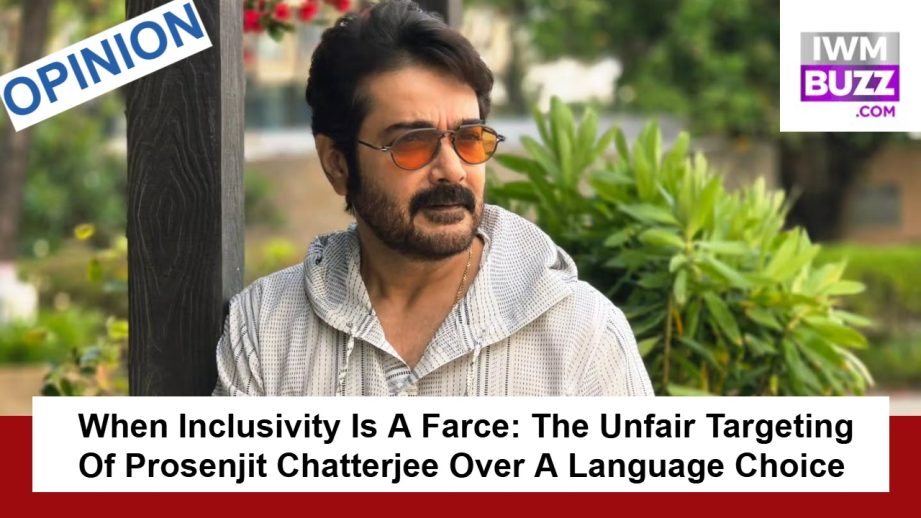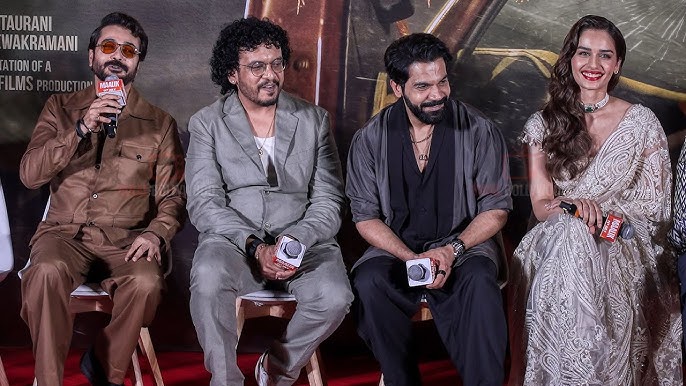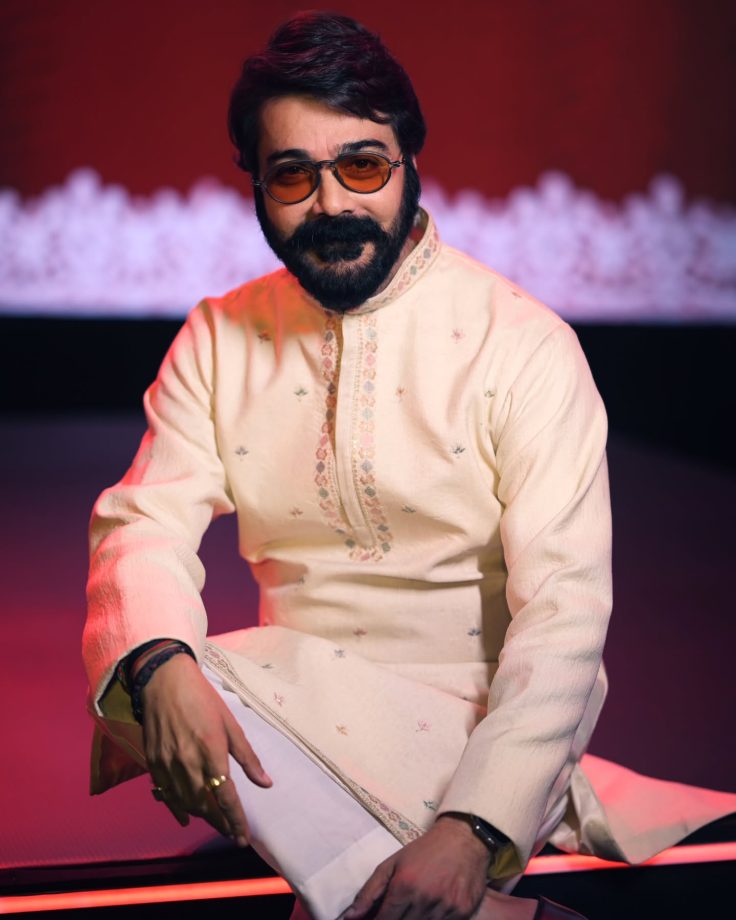
Inclusivity remains a hot-button issue, a headline-hugging buzzword, but more often than not, the concept takes a nosedive the moment it grazes our fragile egos. At the trailer launch of Maalik, Prosenjit Chatterjee, yes, the Prosenjit Chatterjee, a stalwart of Bengali cinema, unintentionally offered a much-needed reality check. And for this, he’s now being paraded through the digital gallows.
Let’s rewind.
The event wasn’t held in Calcutta. It wasn’t a platform curated for Bengali audiences. It was held in Mumbai, Maharashtra, the very nucleus of India’s Hindi and Marathi-speaking film industry. The linguistic hierarchy there is clearly tilted toward Marathi first, then Hindi. Bengali is not the lingua franca of the place. That’s just the geographical fact.

Now, what actually happened?
During the press interaction, a reporter asked Prosenjit about how his portrayal of a cop in Maalik differs from his past roles in Bengali cinema. Fair enough. She also asked him about Rajkummar Rao portraying Sourav Ganguly in the upcoming biopic. Interesting question, again. But here’s where the circus began.
The reporter posed her question in Bengali. Prosenjit, calm but assertive, asked, “Why do you need to talk in Bengali?”
Boom. That one sentence was enough. Enough to send a section of the internet spiraling into righteous indignation, shrieking about betrayal, about linguistic pride, about how Prosenjit owed it to Bengali culture to respond in Bangla. Suddenly, the same people who champion “inclusivity” and “respecting diversity” were aggressively demanding homogeneity, ironically in the name of regional pride.

Let’s pause and be honest. If tomorrow Kamal Haasan walked into a Hindi film event in Delhi or Mumbai and decided to answer only in Tamil, regardless of who was listening, there would be clownery trying to decipher what he’s saying. Not because Tamil isn’t a beautiful language, but because it’s contextually misplaced in that setting.
Speaking a language the majority doesn’t understand doesn’t make one culturally rich, it makes the interaction exclusionary. Taapsee Pannu got this spot back in 2019 at the International Film Festival of India (IFFI) in Goa. When asked to speak in Hindi, she simply responded, “I can speak in Hindi, but will everyone here understand it?” The reply from the crowd? A unanimous “No.” She adjusted. And rightly so.
Let’s stop pretending language doesn’t carry context. This wasn’t a Bengali-language film promotion. Maalik is a pan-Indian venture. The audience in that press room wasn’t exclusively Bengali. By choosing to nudge the conversation into a language accessible to all, Prosenjit didn’t erase his identity. He exercised inclusivity. True inclusivity. The kind that’s rooted in communication, not tokenism.
And let’s not even get started on the irony. If he had refused to answer a question in Marathi or Hindi at a Maharashtra event, the same crowd now virtue-signaling about language pride would’ve accused him of being “elitist,” “regional,” or “out-of-touch.”
So what exactly do we want from our artists?
Should Prosenjit be punished for adapting to a setting? For trying to be understood by everyone in the room? Isn’t that what a pan-Indian actor is supposed to do?
It’s also important to question the performative nature of these outrage cycles. The same people who cry about “North Indian language imposition” turn around and do the exact same thing to their own icons when it suits a narrative. Suddenly, linguistic pride takes precedence over professional context. That’s not cultural protection. That’s hypocrisy.
The language debate in India is ancient and unresolved. In 2025, we’re still arguing about whether one should speak in Hindi, English, or their mother tongue in public forums. And you know what? That’s okay. That debate deserves space. But targeting an individual for speaking the common tongue at a public, multi-language event? That’s not advocacy. That’s clownery.
It’s time we stop confusing identity with insecurity. Speaking Hindi or English on a public stage doesn’t dilute someone’s roots. It doesn’t make someone less Bengali. Prosenjit Chatterjee is Bengali cinema for many. His decades of work speak louder than a moment in a press conference. Let’s stop weaponizing language. Let’s stop demanding artists pick a side in a war they never signed up for.
Because real inclusivity doesn’t sound like “speak my language or else.” It sounds like, “Let’s speak so we can understand each other.”
And Prosenjit Chatterjee? He simply chose the latter.
